
The bit where I place a quote that sums up where were about to head: Each of us is responsible for everything and to every human being. DOSTOYEVSKY (upfront, before I forget)
The bit where I thank those who inspired me to love food more Mum (always), Michael Pollan, and my first boyfriend, George.
The bit where I thank my crew, the
I Quit Sugar team. Especially Jo Foster who made sure this book didnt veer into a compost heap. CONTENTS


Dear Reader. Id like to take a few moments to justify the next 373 pages.
Ive always eaten the whole apple, core and all. My tiny apartment kitchen is littered with recycled jars filled with the drippings from last nights chops (which I use to sweat my veggies, thus adding the right fats for absorbing the essential vitamins), the water from steaming my chard (perfect for padding out soup) and the olive oil from the marinated feta my friend was going to chuck when I was at her place for lunch last weekend (ready-made salad dressing, people!). My fridge is a rainbow of fermented vegetables made from the ugly veggies my local markets cant sell on. My freezer boasts a plastic bucket containing three fish carcasses that I retrieved from guests plates at a friends dinner party a few weeks back. Theyll be turned into fish stock shortly, a litre of which Ill send back to said friend as a thankyou gift. for making my Leftovers Pesto (). for making my Leftovers Pesto ().
I should also mention Ive been known to ask strangers at the restaurant table next to me if I can take home their leftovers (well, they had no intention of doing so themselves); they acquiesced and I turned their indulgent angus beef strips into a Vietnamese soup. Arent you just glad you only know me from a distance! All of which I share here to explain why Ive decided to write a book about how to eat your scraps. Sustainability has always been at the guts of my books, albeit camouflaged behind pretty recipes and shiny, smiley pictures of myself. My recipes use leftovers and secondary cuts of meat. Ive used my sugar-free platform to promote doggie bags and, um, cauliflower, to the masses. As many of you know, I first quit sugar back in January 2011 because I had an autoimmune disease that seriously mucked with my ability to enjoy life.
I wanted a better life, a richer life, a well life, so I tried going sugar-free. It worked a treat and so I continued with the experiment a little longer. But along the way, several bigger, deeper themes emerged. I realised food wastage mattered. More than anything else, actually. I also realised it shouldnt just be the quirky obsession of earnest types with black-framed glasses, farmers market satchels and single-speed bikes.
You see, it goes like this: the biggest source of CO2 emissions on the planet is food waste (not cars, not factories). The biggest food wasters are consumers (us!), not farmers or Big Food. Indeed, we toss out up to 50 per cent of our groceries every week. Ill say it straight this is unconscionable and the change we seek so deeply in life (to the planet, to our being) can come from each of us. Each of us is responsible. For everything.
And to every human being. And BTW, recycling and composting doesnt cut it. Not buying and wasting it in the first place does. That is, using what we have, cooking our leftovers, eating the whole food pith, peel, stalks, stems, leaves, bones, brine, fat, skin and all. This is the future, my dear friends. I soon realised that buying, cooking and eating this way made life better.
Because when you learn to eat your scraps and consume less, life begins to flow. Things become simpler, more elegant; everything falls into place and makes sustainable sense. You dont have to worry whether local or organic or egg-yolk-free is better, or whether your dinner classifies as a superfood. Nope, you simply find yourself flowing to the right outcome. Without the palaver. For example: When you quit sugar, you essentially quit processed food and all its associated nasty additives.
Which means you benefit not only from the absence of sugar, but also from eliminating a stack of other toxic chemicals, crappy fats and low-brow carbs. Quitting sugar, by necessity, steers you to the right outcome. Plus, when you quit processed food youre left with real, whole food only which you have to cook, right? This means youre motivated (forced?) to cook, which means you save money and time, plus your health improves with exponential flourish. Which in turn means you stick to this way of eating and living because it feels so good. And on and on the sustainable vibe flows. Another example: When you eat secondary cuts of meat you save money (theyre much cheaper), plus you tick ethical and environmental boxes too, as youre contributing to more of the beast being eaten (or less of it being wasted).
Secondary cuts are best slow-cooked, which requires less electricity (saving you even more), and they are more densely nutritious even more so when cooked slowly. Plus, as the slow-cooked flavour is richer, you can use less meat, saving money and the environment and... oh, you get the point! Needless to say, this book celebrates the secondary cut. And one more: Ever gone to make a recipe, realised youre missing an ingredient or two so improvised with what youve got... and found it tasted better? My favourite meals are the ones Ive made when camping and Ive used leftover trail mix to flavour the evening stew. Or when Ive created a fridge surprise (check out my creations on Instagram at #fridgesurprise) from a dearth of talent in my crisper.
I believe we like to fend, to create from what we have. We actually like living without. We are most creative in these situations. Also, we like it when we dont have corner cupboards bulging with waffle-makers. Or mouldy lettuce at the bottom of the crisper. So.
We cook with what weve got, with scraps and leftovers, and we become happier and more creative. We also stop going to the shops as often to pick up a lone chicory bulb or carton of cream or whatever, which saves time, petrol and money, and prevents processed-food temptation at the checkout. All of which sees us get happier and scrappier. And on we flow. This book elevates leftovers to the main attraction, saving money, time, nutrients, scraps, energy, pans, washing up and all those random ingredients that usually sit at the back of the pantry after a single use. I dont start and finish with a recipe.
A meal never should. It should keep going and going a perpetual recipe the juices, scraps and leftovers all repurposed into further meals. The recipes in this book, right from the get-go, are orchestrated to work to a magnificent, elegant flow where we take an ingredient and use every last bit of it. A chicken can spread to 13 meals, 1.5 kg of cheap stewing steak to 14. I cheat, take shortcuts and do stuff my culinary peers no doubt frown upon. I use my fingers to test the readiness of food, skip pointless steps, toss salads with my hands and feature fridge dregs in my ingredients lists.


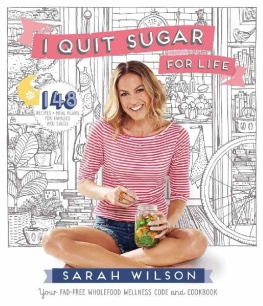
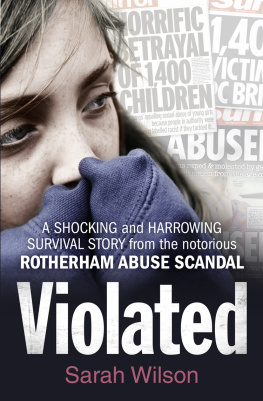

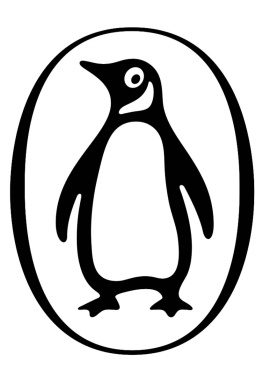
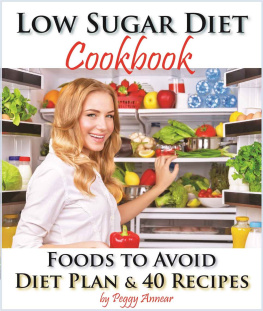
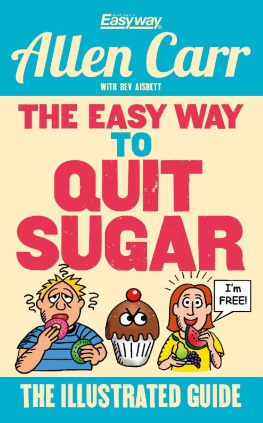
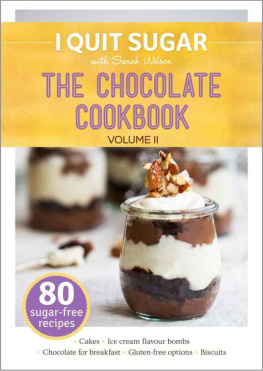
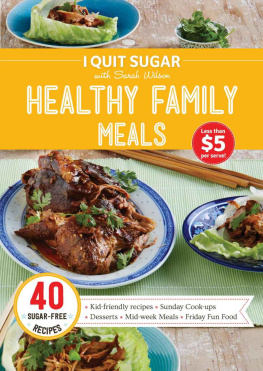
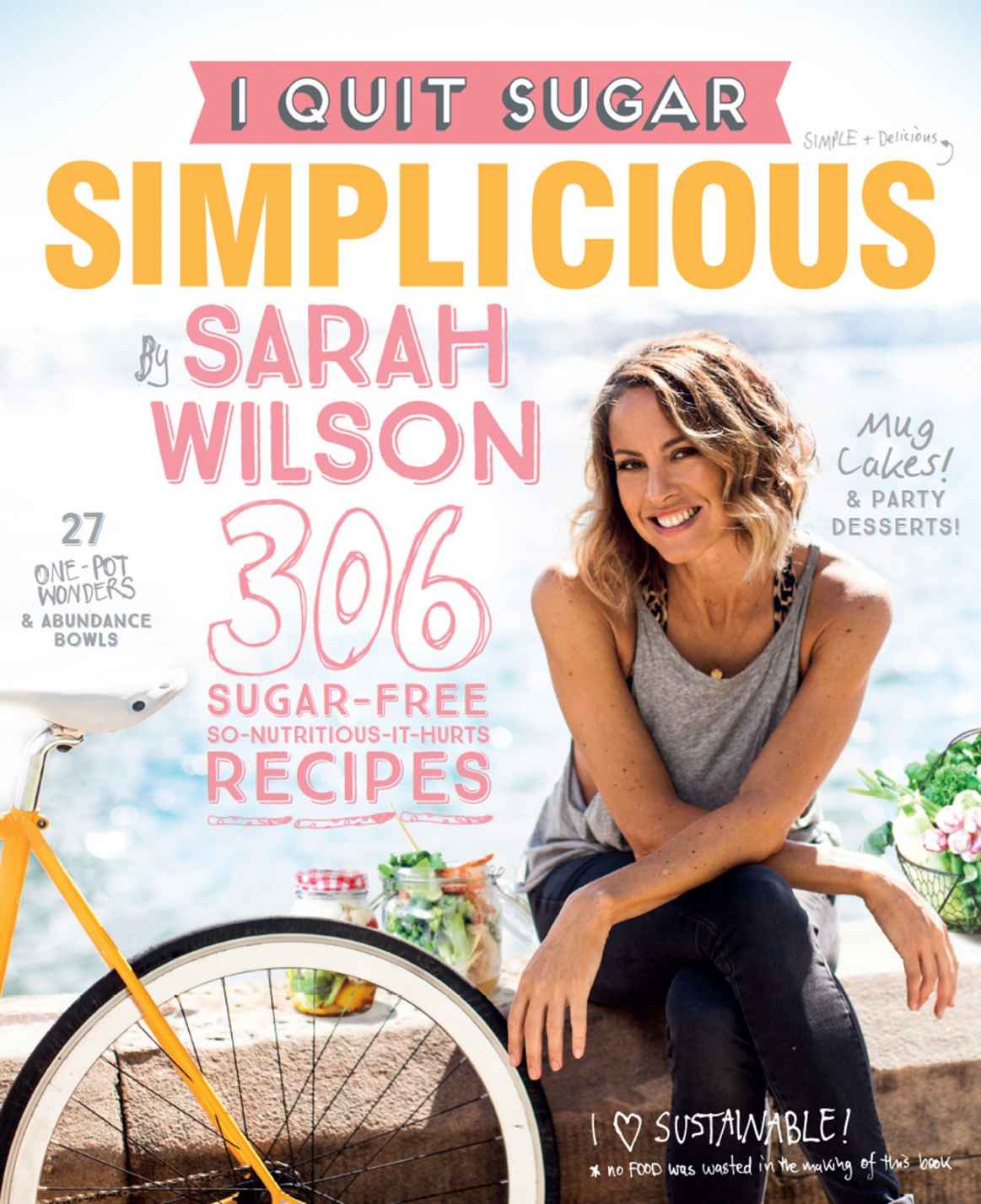

 The bit where I place a quote that sums up where were about to head: Each of us is responsible for everything and to every human being. DOSTOYEVSKY (upfront, before I forget) The bit where I thank those who inspired me to love food more Mum (always), Michael Pollan, and my first boyfriend, George. The bit where I thank my crew, the I Quit Sugar team. Especially Jo Foster who made sure this book didnt veer into a compost heap. CONTENTS
The bit where I place a quote that sums up where were about to head: Each of us is responsible for everything and to every human being. DOSTOYEVSKY (upfront, before I forget) The bit where I thank those who inspired me to love food more Mum (always), Michael Pollan, and my first boyfriend, George. The bit where I thank my crew, the I Quit Sugar team. Especially Jo Foster who made sure this book didnt veer into a compost heap. CONTENTS 
 Dear Reader. Id like to take a few moments to justify the next 373 pages.
Dear Reader. Id like to take a few moments to justify the next 373 pages.